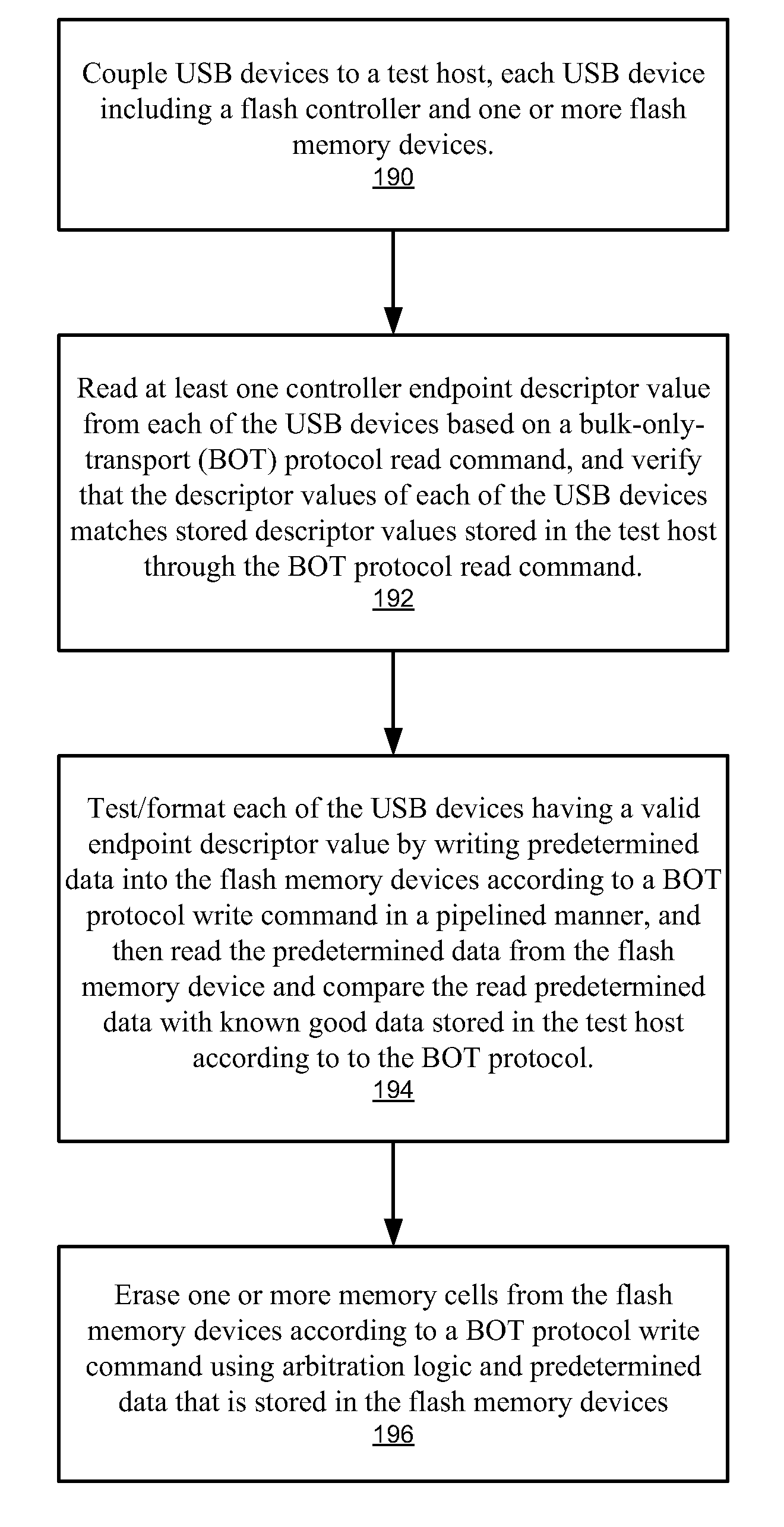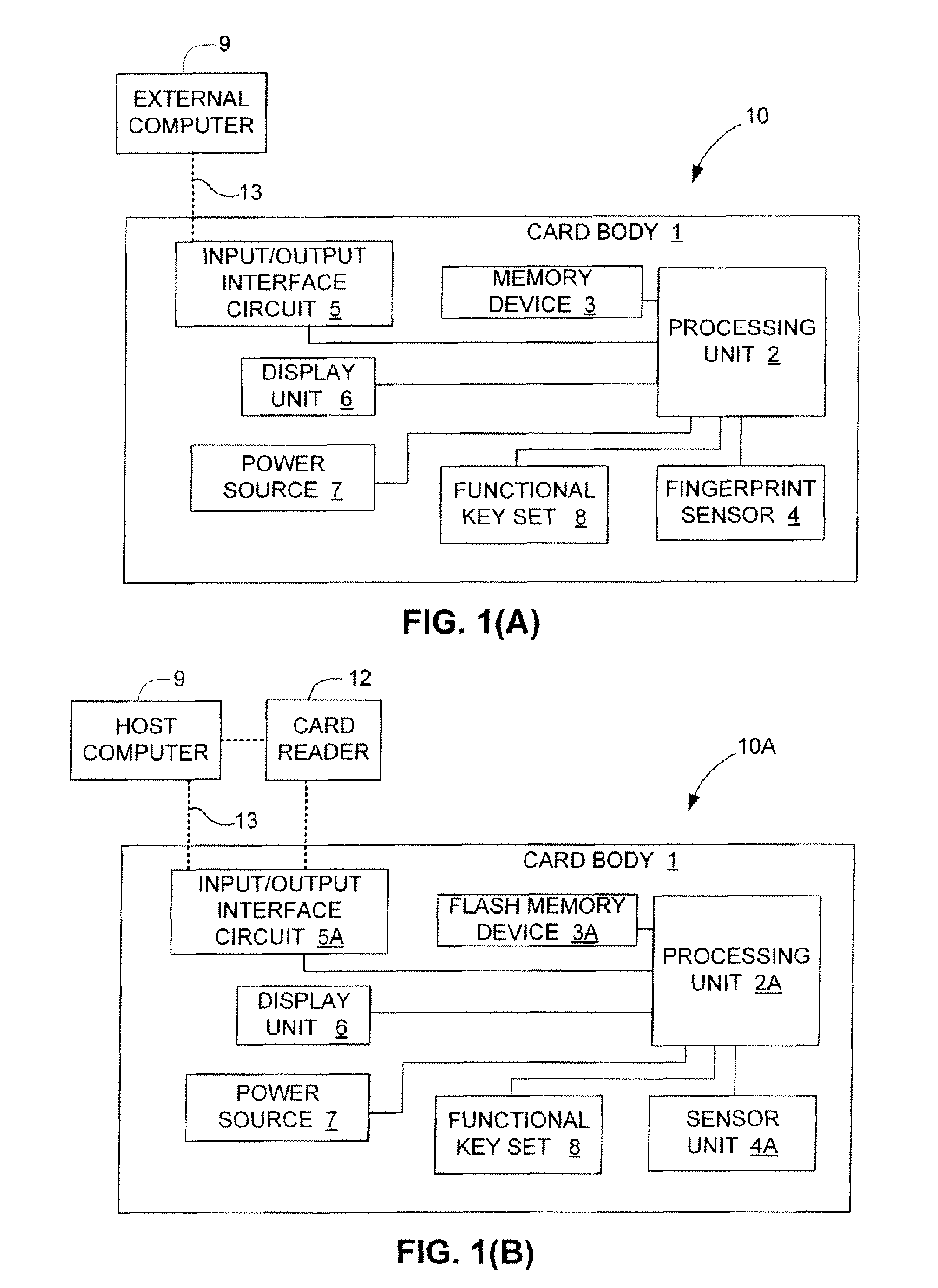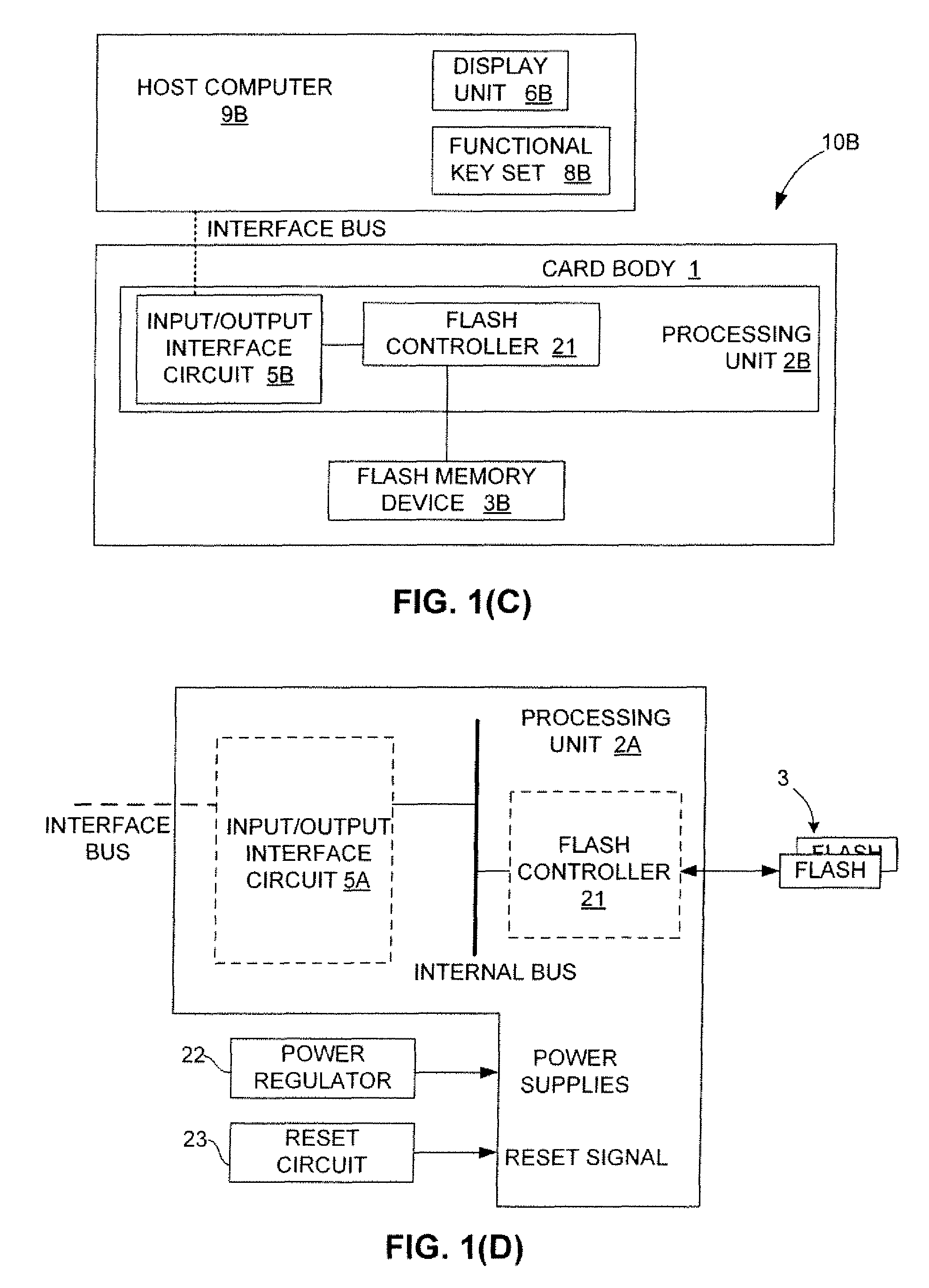Mass production testing of USB flash cards with various flash memory cells
a technology of flash memory cells and usb flash cards, applied in the field of mass production testing of usb electronic data flash cards, can solve the problems of unauthorized access to confidential information, significant amount of time, and conventional testing methods that cannot keep up with the increasing manufacturing volume, so as to facilitate high-volume formatting/testing of usb devices, facilitate efficient and high-volume testing/formatting of usb devices, and eliminate time-consuming and unnecessary registration processes
- Summary
- Abstract
- Description
- Claims
- Application Information
AI Technical Summary
Benefits of technology
Problems solved by technology
Method used
Image
Examples
Embodiment Construction
[0048]The present invention relates to an improvement in methods for producing electronic data flash cards. Although the present invention is described below with specific reference to USB electronic data flash cards, the present novel aspects of the present invention can be used in the manufacture of a wide range of flash card types, including but not limited to PCI Express, Secure Digital (SD), Memory Stick (MS), Compact Flash (CF), IDE and SATA flash memory cards.
[0049]FIGS. 21A-21G show one embodiment of extended USB connectors and sockets having metal contact pins on both top and bottom surfaces of the pin substrates.
[0050]FIGS. 22A-22I show a second embodiment of extended USB connectors and sockets having metal contact pins on just one of the surfaces of the pin substrates.
[0051]Referring to FIG. 1(A), according to an embodiment of the present invention, an electronic data flash card 10 is adapted to be accessed by an external (host) computer 9 either via an interface bus 13 o...
PUM
 Login to View More
Login to View More Abstract
Description
Claims
Application Information
 Login to View More
Login to View More - R&D
- Intellectual Property
- Life Sciences
- Materials
- Tech Scout
- Unparalleled Data Quality
- Higher Quality Content
- 60% Fewer Hallucinations
Browse by: Latest US Patents, China's latest patents, Technical Efficacy Thesaurus, Application Domain, Technology Topic, Popular Technical Reports.
© 2025 PatSnap. All rights reserved.Legal|Privacy policy|Modern Slavery Act Transparency Statement|Sitemap|About US| Contact US: help@patsnap.com



